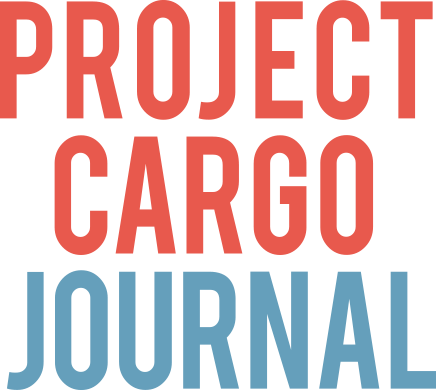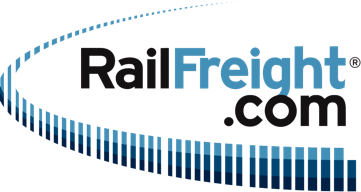Using “zero steel” makes its electric machine “the world’s most sustainable reach stacker”, Kalmar claims.
Following the announcement in May 2023 of its partnership with SSAB to bring SSAB Zero to the cargo and load-handling industry, Kalmar launched an option for its electric reach stacker to be partly constructed with SSAB Zero Steel at the TOC Europe conference in Rotterdam this week.
Cargotec first announced it was working with SSAB on “fossil-free steel” in 2021. SSAB Zero is available in limited quantities and grades currently. At this point, Kalmar is able to fabricate up to 47% of the steel component of a reach stacker from SSAA Zero Steel. Speaking with WorldCargo News at TOC Europe, Mette Kjems Bærentzen, Head of Sustainability, Kalmar, said that most of that 47% component is used in the boom, with a smaller amount in the spreader.
Currently, said Kjems Bærentzen, manufacturing an electric reach stacker generates 40t more of CO2e than manufacturing a diesel reach stacker, mostly from production of the batteries. However, 65% of a reach stacker’s weight is steel. Using SSAB Zero in the boom alone Kalmar is able to reduce CO2e emissions by 32t . Further savings of 22t and 6t CO2e can be achieved using SSAB Zero in the frame and parts of the spreader.
Kalmar claims further CO2e reductions of 11t and 9t CO2e can be achieved by using a counterweight with a steel shell and concrete incorporating iron sands and scrap materials and by leveraging telematics to monitor and maintain the correct tyre pressure respectively. Peter Olsson, Head of Global Sales for Kalmar counter balanced machines said the 9t CO2e emissions savings attributed to tyres comes from improved tyre life and reduced fuel consumption from maintaining the correct tyre pressure. These options can also be incorporated on a diesel machine, but Kjems Bærentzen said customers purchasing an electric machine are more minded to use remote tyre pressure monitoring to monitor and maintain correct tyre pressure.
In addition to SSAB Zero steel, customers have the option to replace standard hydraulic oil with PANOLIN biodegradable hydraulic oil. This produces a CO2e reduction of 3t. In the final accounting, an electric reach stacker generates an additional +40t CO2 from its manufacturing compared to a diesel machine. SSAB Zero steel, the new counterweight material, tyre monitoring and biodegradable hydraulic oil lower CO2e emissions by a total of 83t, giving a net improvement of -43t CO2e in “possible avoided emissions” from the new options on an electric reach stacker compared to a diesel machine.
In terms of added cost, Olsson said the impact on the capital cost of a reach stacker is minimal, as steel makes up only 5% of the cost of materials. Over time as SSAB produces more low carbon steel, and as other options become available, Kalmar aims to increase the use of cleaner steels beyond the 47% offered today.
“In today’s world, businesses need to actively find ways to reduce their CO2 emissions, and going electric is one of the best ways to cut your carbon footprint and prepare for a low-carbon future,” said Kjems Bærentzen. “We are constantly seeking new ways to improve the sustainability of our cargo-handling solutions, and these new options provide customers with even more ways to address the growing need to cut their carbon footprint with equipment that is not only more sustainable to operate but also constructed in a sustainable manner.”
You just read one of our articles for free
To continue reading, subscribe to WorldCargo News
By subscribing you will have:
- Access to all regular and exclusive content
- Discount on selected events
- Full access to the entire digital archive
- 10x per year Digital Magazine
SUBSCRIBE or, if you are already a member Log In
Having problems logging in? Call +31(0)10 280 1000 or send an email to customerdesk@worldcargonews.com.




